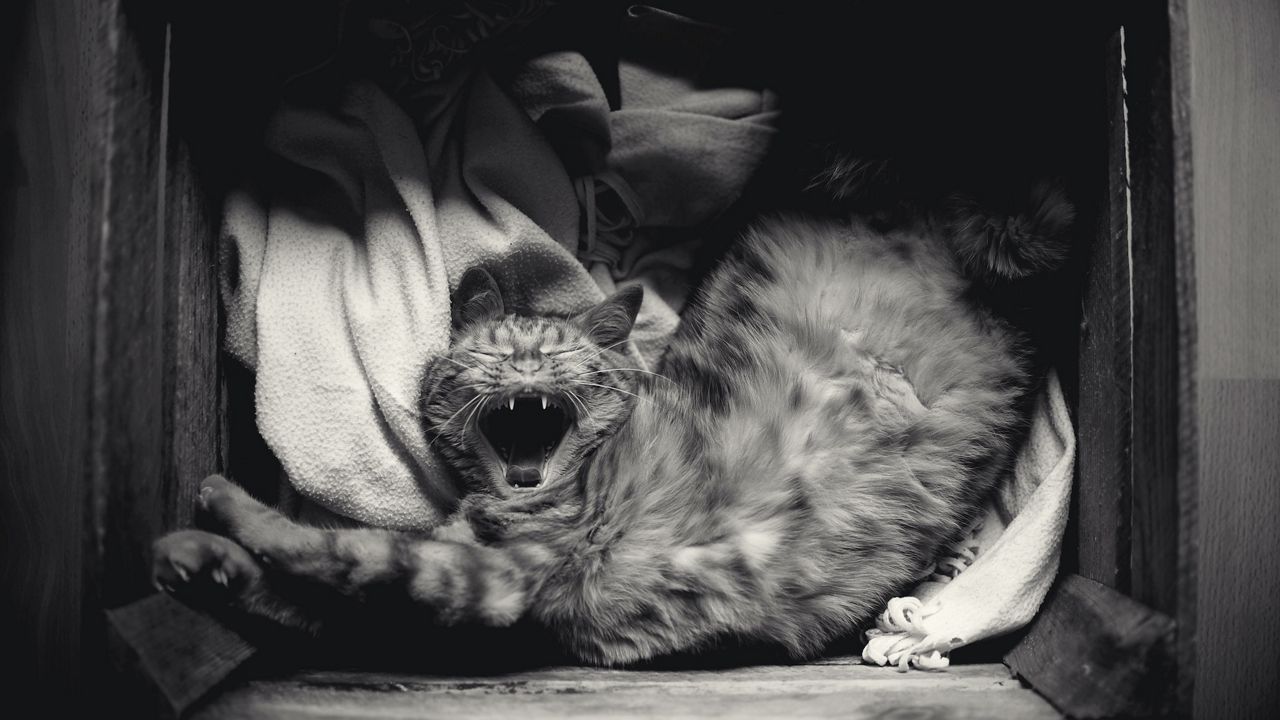ST. PETERSBURG, Fla. — Floridians have a well-earned reputation for being laid-back. This reputation even extends into the annual storm season; while the media hypes spaghetti models and sandbag distribution sites open, many residents are engaged in stocking up on hurricane party supplies.
Two groups, however, consistently defy that rather valid stereotype: families, and responsible pet owners.
What You Need To Know
- Your pets need special consideration when planning for a hurricane evacuation
- Here are the items you definitely need to have ready to go in case of an evacuation
- Authorities are recommending evacuating to a friend or relative's house rather than a shelter due to COVID-19
- Visit our Storm Season 2020 Guide for the latest news
If you’ve got a furry (or feathered, or wooly, or scaly) family member, you’re apt to pay more attention when a named storm takes aim at your portion of the Sunshine State. Animals require care, accountability, and often, some serious outside time. Many pet owners consider evacuation or shelter options earlier and more seriously than other Floridians, due to the added complications that come with the desire to keep their pets safe.
“Pre-planning is a really good idea,” says Claire Wray, community outreach manager for St. Petersburg animal shelter Friends of Strays. “You need to have a good idea of where you can go… Now, because of COVID, they’re recommending going to a hotel or to a friend or relative’s house rather than a shelter, so you can be properly socially distanced.”
Being adequately prepared for relocating a pet well ahead of time is a great way to cut down on the stress and last-minute scurrying that accompanies hurricane season. Getting your furbaby’s “go-bag” together before your region enters the cone of uncertainty, and keeping it updated every year, is not just a good idea—it should be a standard operating procedure for every Florida pet owner.
Along with an ample supply of food, water, and love, here are the things that should be ready to head out with you and your pet at a moment’s notice during every hurricane season.
Carrier/crate/cage. Many hotels and shelters won’t admit you with your pets unless they’re in some sort of carrier, and Uncle Paul up in Atlanta will probably appreciate not tripping over strange animals running amok in his house in the middle of the night. Wray recommends using a hard-sided rather than soft carrier to protect your pets from accidents, and filling it with items familiar to your little guy or gal—toys, bedding that smells like home, and perhaps even a piece of your clothing that has your scent on it.
If your pet isn’t crate-trained or used to being confined, sedation could be an option.
“I’m not a veterinarian, but I think if it’s something that is provided by your vet, that’s probably a good idea to keep them calm and less stressed out,” says Wray.
Microchipping. If your dog or cat isn’t microchipped, you should strongly consider having it done in case the animal runs away, or you somehow get separated. If your pet is microchipped, make sure the information is up to date.
Registration. Not everyone in Florida has their pet properly registered with their county of residence, but everybody should—getting busted without registration during an evacuation could put additional stress on an already hectic experience, and potentially lead to legal woes.
Additional documentation. Copies of vaccination and other veterinary records should be on-hand, in case you need to take your pet to an unfamiliar vet. Plus, it’ll definitely come in handy if an authority figure asks you why you’ve got those weird pills. Speaking of which:
Medication. Most vets recommend taking a two-week supply of your pet’s medications with you when you evacuate. It won’t be easy to try to get a prescription refilled or replaced if you’re far from your home and your usual vet.
Photographs. Most people have tons of images of their pets on their phones, but it doesn’t hurt to make sure there’s a very recent photo that’s easily accessible.
A first-aid kit. This one’s for both you and your best animal buddy. Make sure you purchase a first-aid kit—rather than taking the one under your sink, that one needs to stay at home—and keep it in either your own or your pet’s go-bag. You never know when a Band-Aid or a bandage or even a little medical tap is going to save the day.
Many Florida county websites have guidelines and additional helpful information about evacuating your pet, such as which shelters take animals and what the criteria are for admitting them. All of this should factor into your preparations for getting out of Dodge if the need should arise, but remember—the most important thing you can take with you is a plan.



